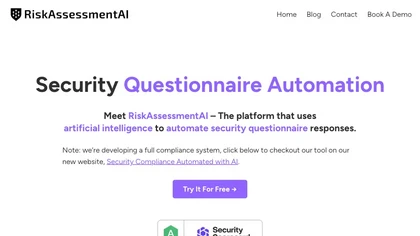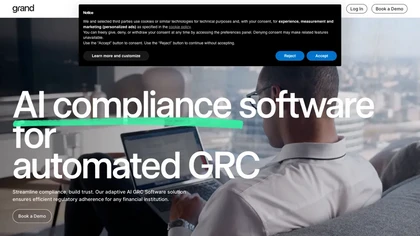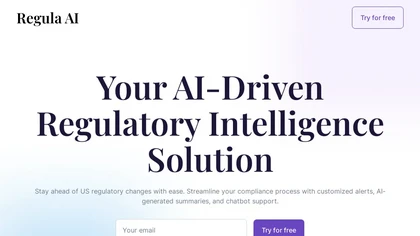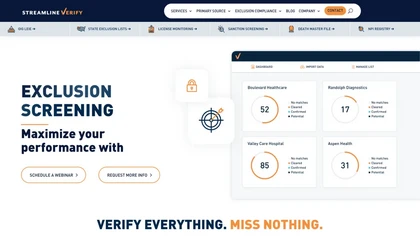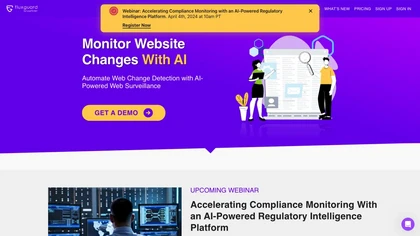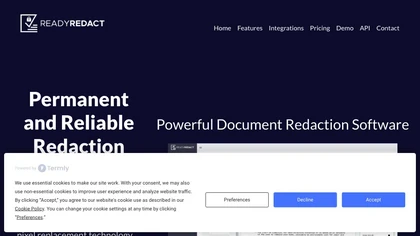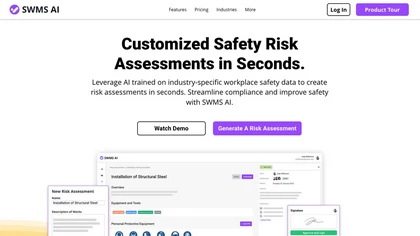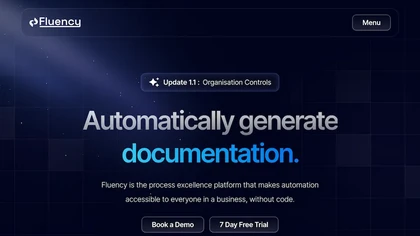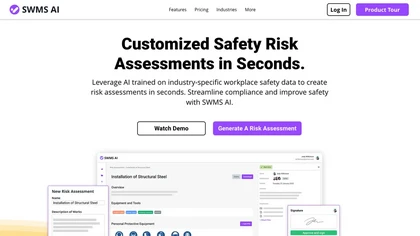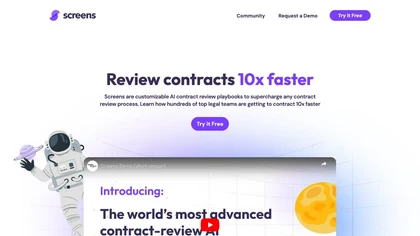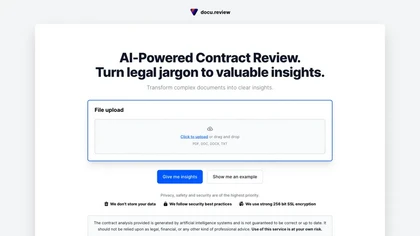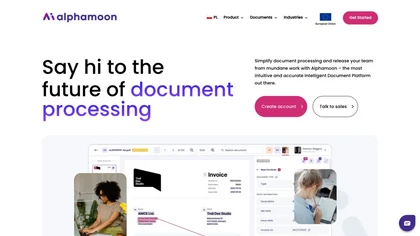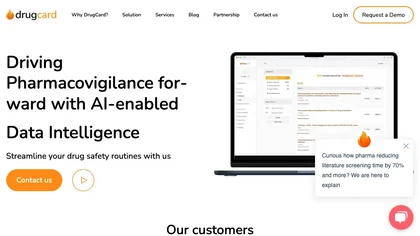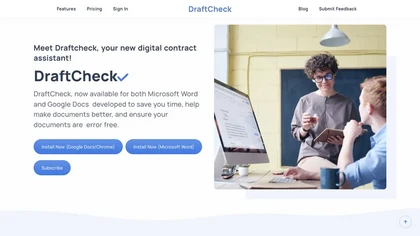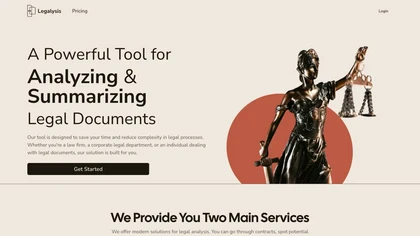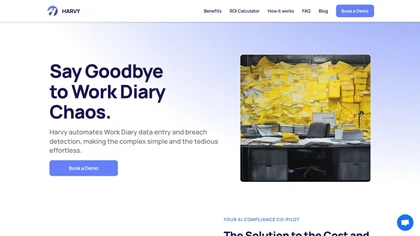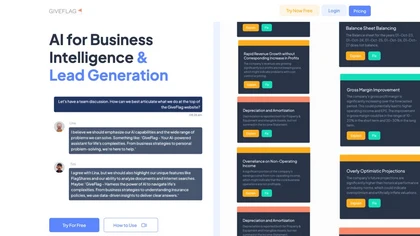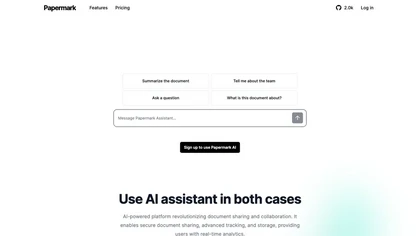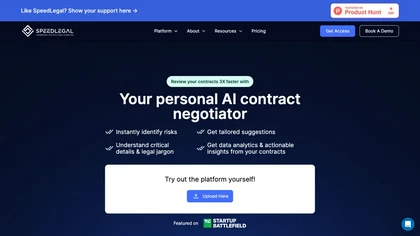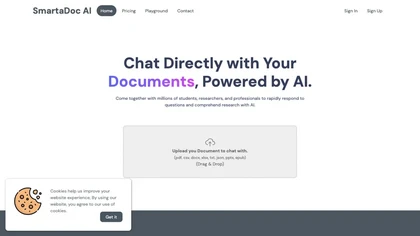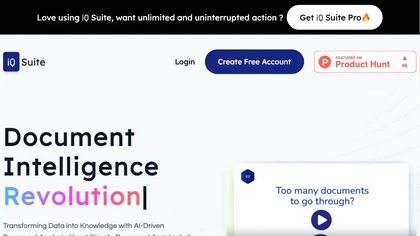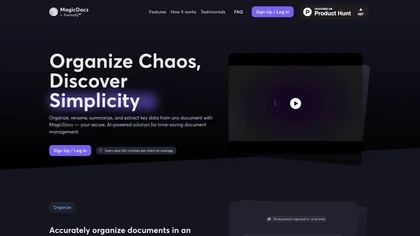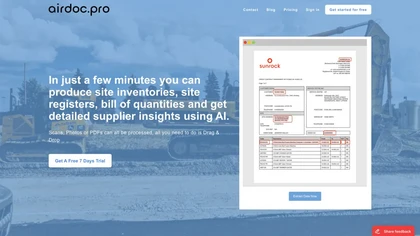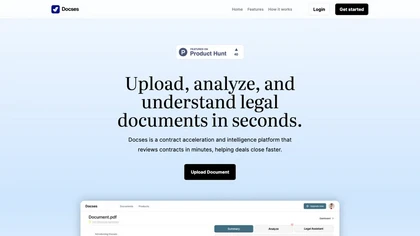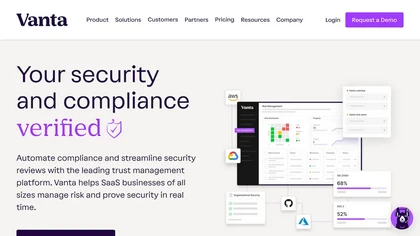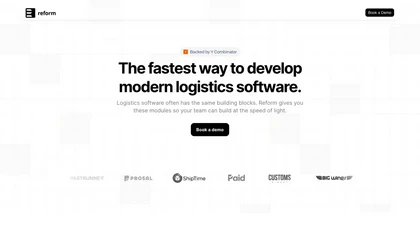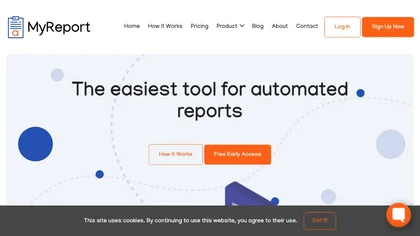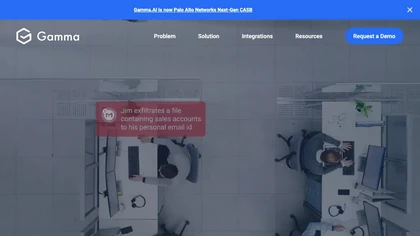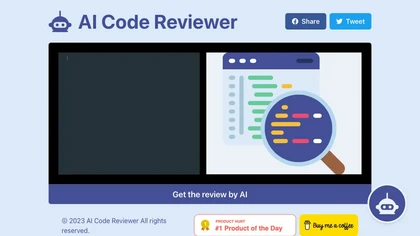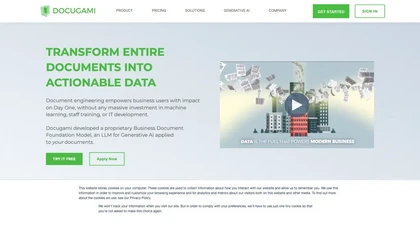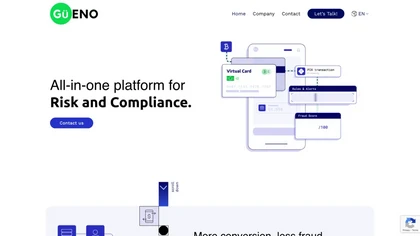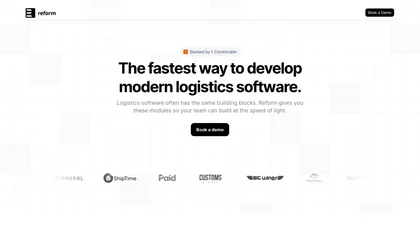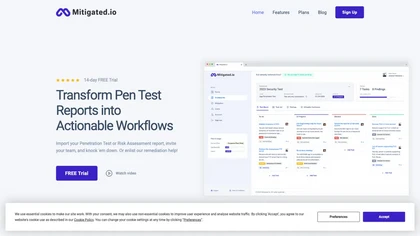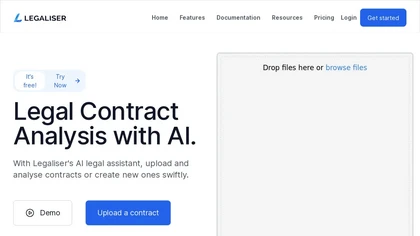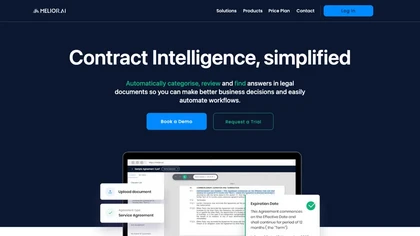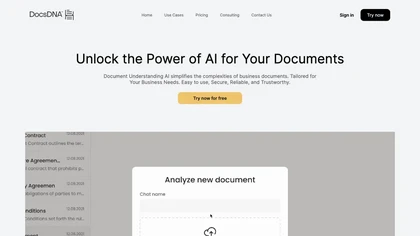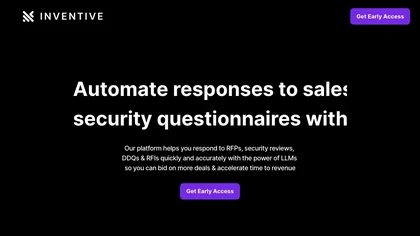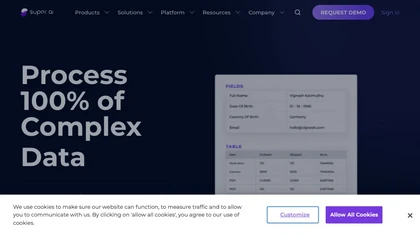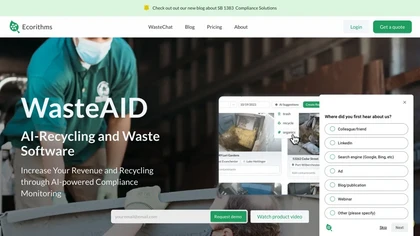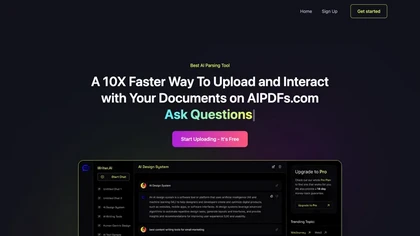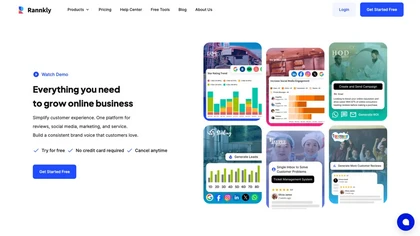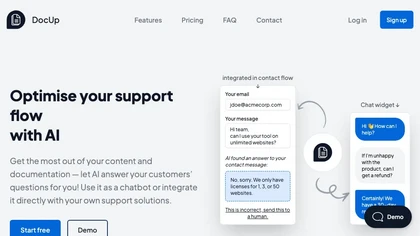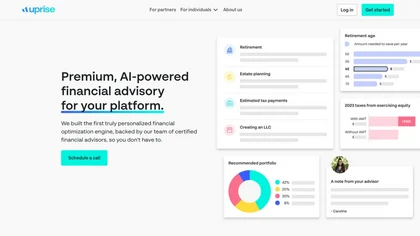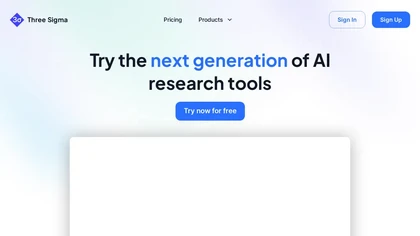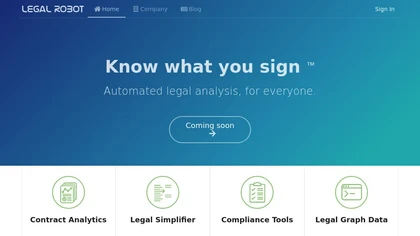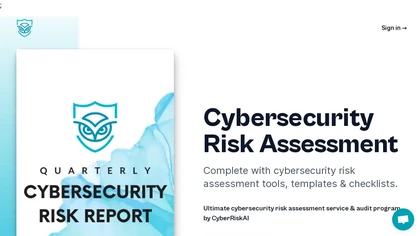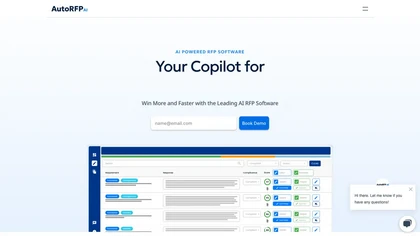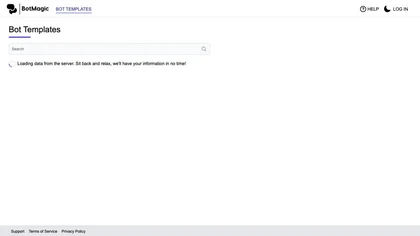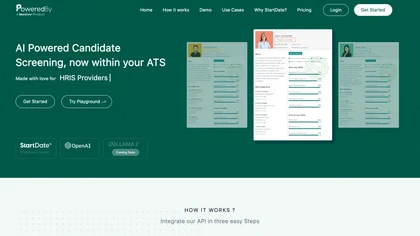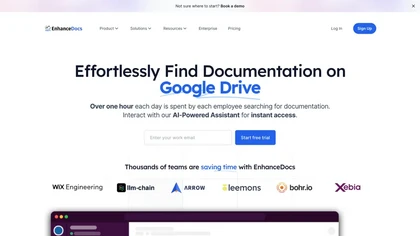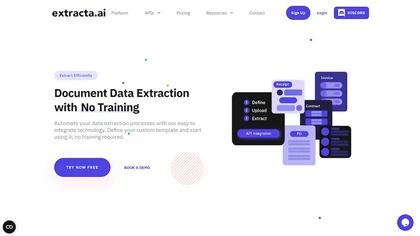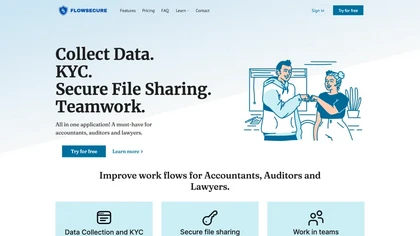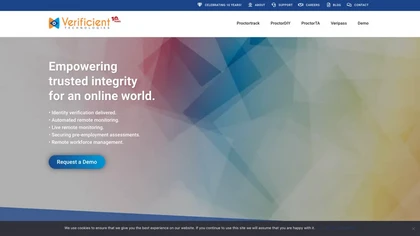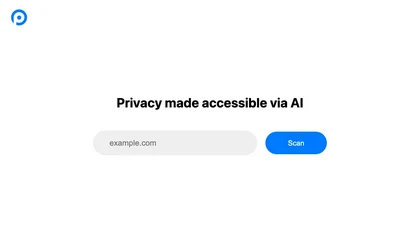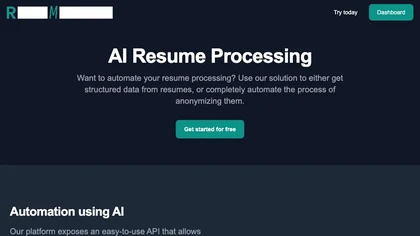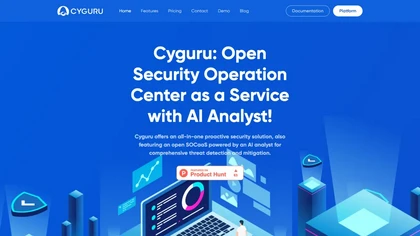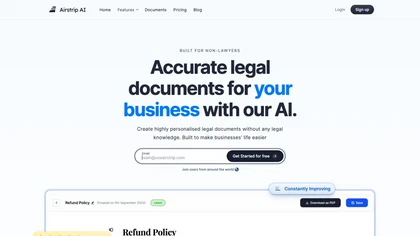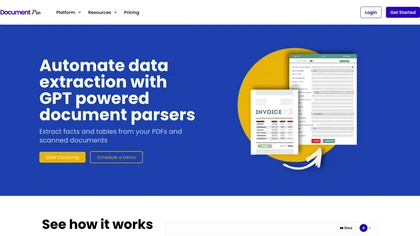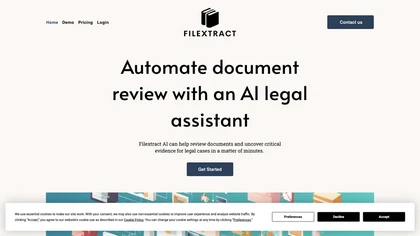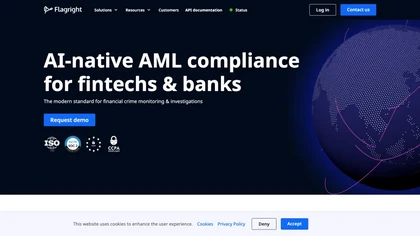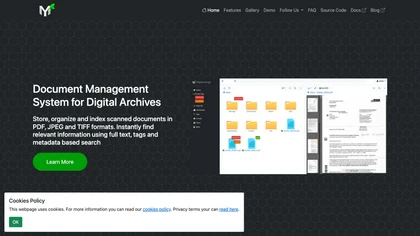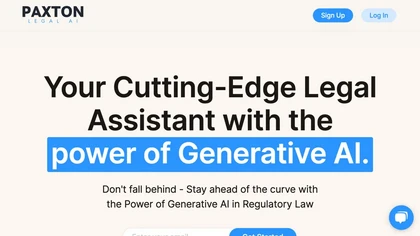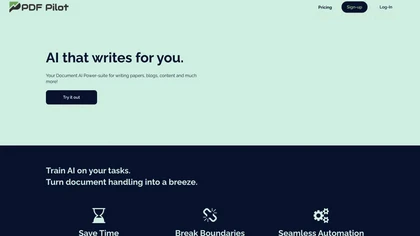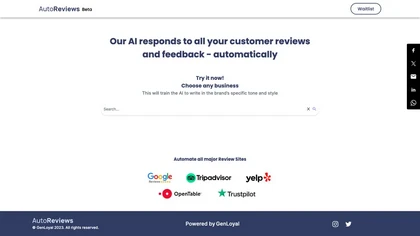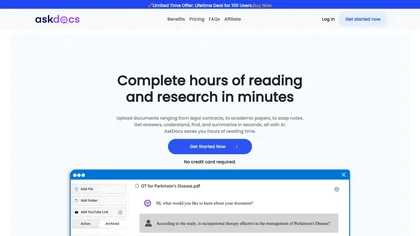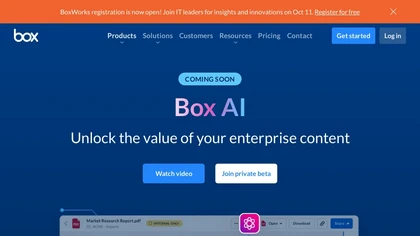AI use cases for Regulatory Compliance
Generative AI can be applied in various applications for regulatory compliance. Here are some examples to explore below for inspiration with AI tools to get you started with using AI in regulatory compliance.
🛠️ 70 AI tools for Regulatory Compliance
Explore a dynamic list of some of the most popular tools to get you started with various AI use cases and applications for Regulatory Compliance to streamline your workflows and productivity today.
RiskAssessmentAI features
- Automate security questionnaire responses
- Scan documentation
- Build knowledge base
- Support various assessment formats
- Collaboration between teams
Grand features
- Automated GRC software
- Efficient regulatory adherence
- Compliance workflows automation
- Policy and regulatory news monitoring
- Insights into regulatory changes
Regula.ai features
- Provides customized alerts
- Generates ai-summaries
- Natural language query support
- Simplifies compliance
- Helps smbs stay informed about regulatory changes
Streamline Verify features
- Screening against various databases including OIG LEIE, state exclusion lists, license monitoring, sanction screening, death master file, and NPI registry
- One-stop portal for quick identification and resolution of compliance screening issues
- API integration for future compliance needs
- Enhances efficiency in executing exclusion screening and credential management
- Trusted by over 10,000 establishments
Fluxguard features
- Web Change Monitoring using generative AI
- Screenshots and pixel change detection
- Text change detection and network analysis
- Real-time or scheduled report dispatch
- Email reports with screenshots and text changes
ReadyRedact Document Redaction features
- Redacting
- Documents
- Privacy
- Data protection
- Compliance
- Gdpr
- Ccpa
- Lgpd
- Popi
- Hipaa
SWMS AI features
- Tailored risk assessments generation
- Customizable safety policies
- Personalized document generation
- Integration of AI assistant for safety information
- Streamlining compliance processes
🔥
Create your account, save tools & get personal recommendations
Receive a weekly digest of our handpicked top tools.
Unsubscribe anytime
Fluency.com features
- Automated Process Documentation
- Process Insights
- AI Assistant
- Automations
- Audit View
SWMS features
- AI risk assessments
- Safety Co-Pilot integration
- Customization options
- Quickly generate safe work sequences
- AI-powered safety recommendations
Screens features
- Customizable AI contract review playbooks
- Instant redline suggestions within Microsoft Word
- Ability to run thousands of contracts at once using the Screens app
- Secure and powerful repository for storing contracts
- Expert-crafted playbooks with a focus on accuracy, trust, privacy, and data security
Docu features
- Document upload functionality
- Summarization of legal documents
- Identification of key points and critical clauses
- Alerts for potential risks and beneficial clauses
- Utilization of AI algorithms for streamlining document review process
Alphamoon features
- Document automation
- AI-powered
- Error detection
- Optimization tools
- Detailed statistics and analytics
DrugCard features
- Automates drug safety routines
- Multiple languages and countries
- High-performance screening
DraftCheck features
- Automated document review processes
- Surface formatting errors, cross-references, term definitions, and inconsistencies
- Multi-document conflict checks
- Document history tracking
- Local processing for enhanced privacy
Legalysis features
- Contract risk analysis
- Document summarization
- Legal Language Model (LLM)
- Cross-country risk pointing
- Time-saving document summarization
Harvy features
- Automated work diary data entry
- Breach detection
- AI-driven automation for reducing human error risks
- Fast notice-to-produce reporting
- Online access to work diary sheets for up to 3 years
GiveFlag features
- Analyze various documents such as business intelligence reports, form 10-K filings, policy analysis, contracts
- Extract relevant information from sources like academic papers, privacy policies, insurance reviews
- Automate administrative and transactional tasks
- Train GPT-based engines with expert knowledge
- Ensure data security with restricted access to files and chat messages
Papermark features
- Secure document sharing
- Real-time analytics and insights
- Grammar checking
- Content summarization
- Custom link sharing
Speedlegal features
- Analyze contracts
- Instantly identify risks and provide suggestions
- Automatic summaries of contracts
- Red flag analyzer for hidden risks
- Answers to contract-related questions
- Legal documents summaries
PrivacyQuest features
- Record processing activities management
- Incident/breach management
- Individual rights management
- Consent management
- Automated document generation
SmartaDoc AI features
- Support for multiple file formats like PDF, CSV, DOCX
- Chat history for tracking interactions
- Document summarization capabilities
- Quick starting questions to facilitate user engagement
- Efficient extraction of key information from documents
iQ Suite features
- Uploading pdf files
- Crafting queries for document insights
- Automatically detecting and extracting data
- Presenting extracted data in charts and tables
- Integrating with other apps through rest api integration
Magic Docs features
- Organize documents
- Rename documents
- Summarize documents
- Extract key data
- Enterprise-level security
Airdoc.Pro features
- Data extraction
- Document scanning
- Data categorization
- Automated organization
- Material delivery tracking
Docses features
- Automated summarization of legal documents
- Identification of red flags and critical clauses using advanced algorithms
- Real-time conversations with an AI legal assistant
- Caters to various professionals and industries
- Assistance in understanding legal jargon and making informed decisions
Vanta features
- Automating security compliance processes
- Integration with over 300 security tools
- AI capabilities for accelerating security workflows
- Vendor risk management assistance
- Compliance with over 25 frameworks
Reform features
- Modular building blocks for customized solutions
- State-of-the-art multimodal AI models for logistics documentation
- Automation of data capture for various documents
- Seamless integration with universal transportation management systems (TMS) through a universal API
- Embeddable customer dashboards for real-time data insights
MyReport features
- Automate data collection
- Automate citation
- Description of report topic
- Review of report
- Send report
Gamma.ai
4.8Gamma.ai features
- Continuously monitors employees
- Notifies of security mistakes
AI Code Reviewer features
- Automatically analyzing code for syntax errors and security vulnerabilities
- Suggesting improvements and best practices for code quality
- Identifying potential bugs and areas for optimization
- Generating automated test cases to ensure correctness of the code
- Tracking code changes and providing historical reports on code quality
docugami features
- AI Data Extraction
- Generative AI for document analysis
- Industry-specific insights application
- Transformation of unstructured documents into structured information
- Integration with familiar tools and business systems
AI-FraudGuard Ecommerce features
- Contactless conversion
- Fraud prevention
- Transaction monitoring
- Compliance processes automation
- Real-time monitoring
Unfig features
- Automated data capture from various logistics documents
- Universal TMS integrations for seamless connectivity
- Embeddable customer dashboards for real-time data insights
- Scraping information from numerous sources for visibility into logistics data
- Streamlining logistics operations with unprecedented speed and efficiency
Mitigated.io features
- Transforms penetration test risk assessment reports into actionable workflows
- Leverages collaborative workspaces for task assignment and progress tracking
- Provides AI-enriched mitigation guidance for security vulnerabilities
- Supports easy import of assessment reports
- Enables users to enlist security mitigation services directly from the dashboard
Legaliser features
- Contract analysis
- Drafting
- Fairness assessment
- Risk analysis
- Anomaly detection
Melior AI features
- Cross-language semantic search
- Question answering
- Intelligent document processing
- Automatic categorization
- Dynamic/cognitive search
DocsDNA features
- Streamlined document solutions
- Collaborative editing
- User management capabilities
- Language adaptability features
- Customizable document handling
Inventive features
- Streamline rfis, rfqs, security reviews, rfps
- Generate reliable answers with ai
- Reduce reliance on subject matter experts
- Save substantial time and effort
- Up-to-date content
AnythingLLM features
- One-click Installation
- Runs locally
- Fully private
- Custom models integration
- Documents ingestion support
SuperAI features
- Automation of business processes
- Conversion of unstructured data to ai applications
WasteAID features
- Automatic route auditing
- Integration with existing systems
- Audit over 400k generators and 1m+ pickups
- Detect overflow incidents and identify contamination
- Tracking commercial account compliance
AIPDFs features
- Document parsing
- Advanced algorithms
- Question-based interaction
- Free document uploading
- Insight generation
Rannkly features
- Unified inbox for managing review replies
- Automated review analysis for insights
- Competitor analysis
- Automated responses powered by AI
- Enhancing online reputation and customer experiences
DocUp features
- Chatbot integration
- Api access
- Comprehensive faqs
- Embedding on website
Uprise Embedded features
- AI-powered financial advisory platform
- Personalized financial optimization engine
- Automating regulatory compliance
- Concierge services for comprehensive financial planning
- Flexible integration options and white-label solutions
Documind
5Documind features
- Upload pdfs in bulk
- Process entire documents at once
- Ask questions about documents and receive relevant information
- Custom chatbot for document support
- Accessible worldwide with 95 language support
Three Sigma features
- Advanced search technology
- Imagine assistant
- Chatgpt plugin
Legal Robot features
- Automated contract reviews
- Automated contract negotiations
- Legal analytics tools
Cyberriskai features
- Cybersecurity risk assessment
- Automated quarterly risk audits
- Nist cybersecurity audit framework
- Comprehensive assessment report
- Employee cybersecurity practices
AutoRFP
5AutoRFP features
- AI-driven response generation
- Task automation
- Real-time collaboration
- AI content search
- Secure single sign-on capabilities
BotMagic features
- Interpreting and analyzing documents in Confluence
- Swift document summaries
- Custom queries for deeper exploration
- Jira ticket handling and summarization
- Advanced conversational experiences with information security oversight
PoweredBy features
- Integration with ATS and HRIS providers
- API key generation for screening requests
- Utilizes proprietary model for job analysis
- Includes NLP and computer vision applications
- Proficiency in machine learning frameworks
EnhanceDocs features
- Document search across multiple platforms
- AI-powered assistant for instant access to original documents
- Integration with productivity tools like Slack, Teams, and Discord
- Insights and analytics for improving documentation
- Natural language documentation search and AI-generated content suggestions
Contractify features
- Automatic contract tasks and notifications
- Proactive deadline management
- Secure contract repository
- Efficient contract approval flows
- AI capabilities for contract analysis and digitization
Extracta.ai features
- Advanced OCR System
- Fine-tuned Model for data extraction
- Seamless API integration
- Competitive pay-as-you-go pricing model
- Up to 99% accuracy without prior training
Flowsecure.io features
- AI powered data collection system
- Recurring data collection
- Secure file sharing
- Create surveys
- Automate daily data collection procedures
Verificient features
- AI-powered tools for online identity verification and monitoring
- Proctortrack for secure remote proctoring
- Biometrics, computer vision, and machine learning capabilities
- Continuous identity verification and remote monitoring
- Live proctoring with AI and automated remote proctoring
Privacy Observer features
- Automatically scans privacy policies
- Comprehensive score
- Detailed information on data handling
- Unlimited scans
- Anonymous checks
ResuMetrics features
- Resume Analysis API
- Automation using AI
- Candidate Onboarding Automation
- PII Redaction Automation
- Resume Scoring
Cyguru features
- Cloud-based AI security operation center (SOC)
- AI-powered attack detection
- Continuous monitoring for vulnerabilities and misconfigurations
- Compliance with essential security standards (GDPR, PCI DSS, NIST)
- ML and AI detection capabilities for identifying anomalies and suspicious activities
Airstrip AI features
- Personalized questionnaire for document creation
- Lawyer-level revisions suggestions
- End-to-end encryption (AES-256)
- Compliance with regulations (HIPAA, GDPR, CCPA)
DocumentPro features
- GPT-Powered Data Extractors
- AI-Powered OCR
- No-Code Data Extraction
- Template-based Parsing
- Automatic Date Formatting
Filextract features
- Automates document review
- Helps uncover critical evidence in legal cases
- Assists in preparing depositions by building outlines and timelines
- Provides document summaries for case files
- User-friendly interface for extracting key insights
Flagright AI features
- Real-time transaction monitoring
- Case management
- Automated end-to-end solutions
- AI forensics for investigating suspicious activities
- Customer risk assessment automation
papermerge.com features
- Document management system
- OCR technology
- Full-text and metadata-based searches
- User-friendly interface
- Open-source solution
Paxton.ai features
- Legal research
- Drafting of memos, briefs, and client communications
- Customized templates
- Automatic citation formatting in bluebook style
- Comparison of versions of laws and regulations over time
PDF Pilot features
- Automated document tasks handling
- Training with custom examples
- Next-generation information processing
- Contextual document editing
- Data extraction and comprehensive analysis
AutoReviews AI features
- Automated response generation
- Customizable tone and style
- Training capability
- Actionable insights
- Integration with major review sites
AskDocs features
- Uploading multiple document types
- Smart document reader
- Information retrieval
- User data security
- Cloud storage
Box AI features
- Secure content management
- Workflow automation
- Whiteboarding and visual collaboration
- E-signature functionality
- Integration with connected apps
- Customization
- Privacy and security of sensitive content
- Ai-powered content insights
